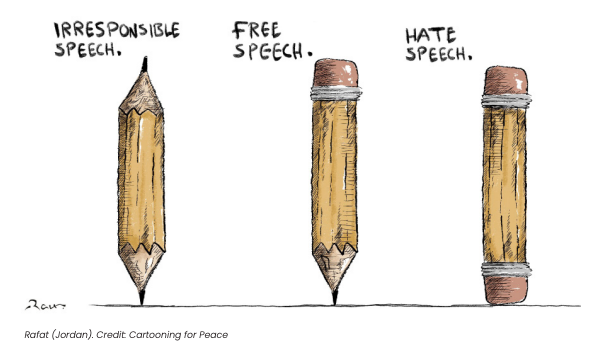Thursday, April 28, 2022
In-Class Exercise: What's the Opposite of a Gun?
Tuesday, April 26, 2022
Tutorial Workshop: This Thursday in the Writers Studio from 11:00 to 1:00
💯💯💯💯💯💯💯💯💯💯💯💯💯💯💯💯💯💯💯💯💯Please take advantage of this wonderful opportunity. I will be in the Writers Studio on Thursday, April 28, from 11:00 to 1:00. Stop by and get a final check before uploading your essay no later than 1:00 that day. If you can't make this time, please let me know and we can try to figure out another plan.
💯💯💯💯💯💯💯💯💯💯💯💯💯💯💯💯💯💯💯💯💯
Thursday, April 21, 2022
Today's In-Class Assignment: Your Perfectly Formatted "Works Cited" Page
This is fairly easy if you pay attention to directions and details.
Once you show me a perfectfully-formatted MLA Works Cited page (with at least three sources) you will be free to leave class early.
Here is the link to the Purdue OWL site for formatting an MLA Works Cited page.
Upload to Populi (5 pts)
I'll be around to address questions. -- Casey
Tuesday, April 19, 2022
Today's Group Activity: Finding Great Sources and Examples
This exercise is really simple and really fun. With two other classmates, you're going to compile a quick bibliography. You can use JSTOR (hint hint) or Google or some other search engine.
Find five (5) articles or essays that address the issue of artistic freedom and censorship in smart insightful ways.
Copy and paste that information into the class discussion board. You have 45 minutes before reporting back to the class. -- Casey
Tuesday, April 12, 2022
Class Presentations on Tuesday, April 12
Today in class everyone will present a draft of their plan for the Delaware Contemporary Project.
You will be scored on a scale of 5.
5 = excellent draft, directly useful for final version
4 = spotty draft, good ideas but not fully realized
3 = needs work, not terribly useful for final version
Each student will only have about 5 minutes. It will be a brisk presentation. Please comment and make suggestions for your classmates. It's part of your participation grade and it's fun.
After presenting their work, everyone will need to address the following questions:
What do your artwork and literary text have to say about the idea of narrative? How do your two pieces connect to the original piece in the Delaware Contemporary? Be as specific as possible. In your understanding, not the dictionary, how is a story different from a narrative? Explain.
Thursday, April 7, 2022
An International View of Artistic Freedom
I linked to this amazing resource in an earlier post, but I forgot to highlight it in class today. Ambitious students will check it out. Keep learning. Right?
Case Studies in 20th and 21st American Art Censorship
Also in 1989, a young Black art student at the School of the Art Institute of Chicago named Dread Scott made headlines for his artwork involving the American flag.
This document, The State of Artistic Freedom, 2021, summarizes the problems that artists (a/k/a content creators) continue to face.
Start to take notes, search J-STOR, bookmark websites, freewrite. You will be writing your essay on these ideas.
Introducing the Final Module: Censorship is Complicated!
Tuesday, April 5, 2022
Schedule for the End of the Semester
We have only nine (9) class sessions left in the semester. Please make every effort to come to these nine classes fully prepared to participate in discussion and critique. Of course, make sure your assignments are uploaded on time.
Two assignments remain:
The Delaware Contemporary Project (two parts: art & writing), and the Final Essay (20 pts).
I have pushed back the Delaware Contemporary Project a tiny bit. Your finished drafts will be due no later than 1:00 pm on Tuesday, April 12. On that day, every student will make a brief (5 minute) presentation at the front of the class. Have a sketch or a concept drawing ready to show, and also have a draft of the writing component ready to share. This will count for 50% of your final grade for this unit, so don't blow it off.
Your final submission is due no later than 1:00 pm on Tuesday, April 19. No late submissions will be accepted because we need to get the work to the jurors at The Delaware Conemporary, so they have time to select what they believe to be the best work.
The Final Essay will be introduced on Thursday, April 7. It is due no later than 1:00 pm on April 28. The assignment centers on the theme of censorship in the arts and will require you to write argumentatively to support a debatable position. This essay will incorporate at least three (3) reputable secondary sources and be formatted in MLA style. The minimum length is seven (7) developed paragraphs with a "Works Cited" page at the end. This should demonstrate your best writing of the semester. Show me what you have learned. Students who do a brilliant job with this final assignment are likely to improve their final grades. A draft of this essay is due no later than 1:00 pm on Tuesday, April 26 (50%), and the final is due no later than 1:00 pm on Thursday, April 28.
Questions: csmith@dcad.edu
FAQ: The Academic Essay
I've been teaching college writing for a very long time, and through these years I've noticed certain enduring issues that students ...
-
First Year Students! Sending you a reminder that you need to sign up for your first-year portfolio presentation. The sign-up is live. Bel...
-
With the conclusion of the Zine project, we have reached the end of the first unit of the class: 1. "Self" is over. 2. "Comm...
-
This assignment is fairly straightforward. Please follow these directions carefully. You will be writing a focused mini-essay of approxima...

















